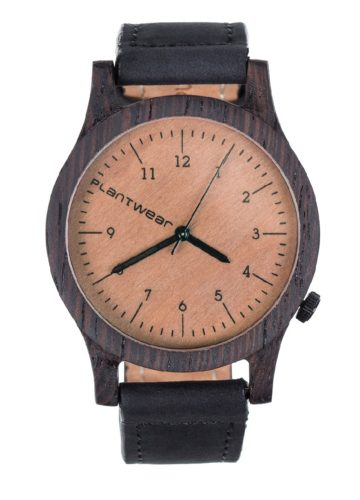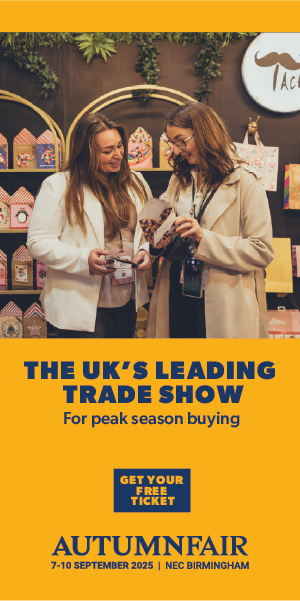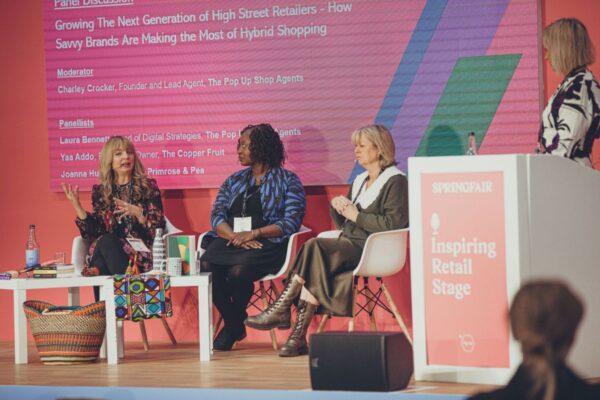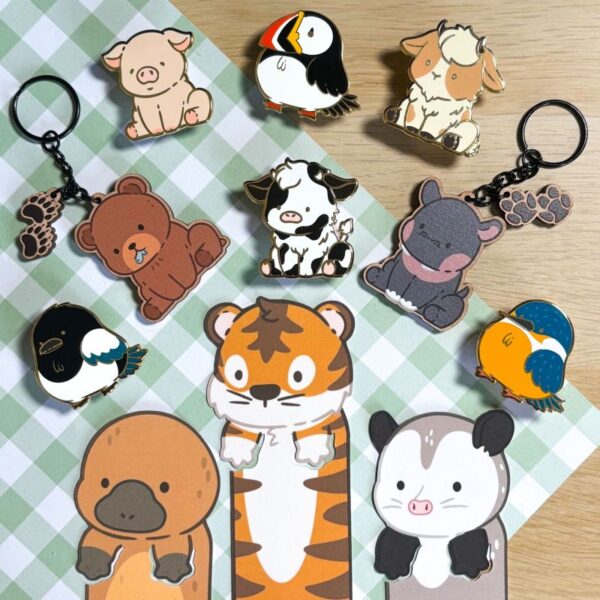Research analyst Mintel has identified the key macro trends that are likely to define the European region in the coming year and beyond. This year’s predictions acknowledge the environmental, political, technological and psychological challenges manifesting in western society and explain how retailers, manufacturers and brand owners can stay ahead of the curve and win the loyalty of consumers.
With environmental concerns high on the agenda, recycled packaging and products which avoid ocean-polluting plastics are becoming far more important to consumers. More brands will offer education and leadership with clean, safe and sustainable products that distinguish them from the competition as more food and beauty brands seek to highlight and safeguard the purity and future supply of their ocean ingredients.
Pictured above is a beautiful handwoven rug by Weaver Green made entirely from recycled plastic bottles and proving that both substance and style are possible for this new breed of best practice products.
This is the time for brands to get really creative in the quest for sustainability. Adidas is making one million shoes from recycled ocean plastic whilst Procter & Gamble committed to introduce 25% recycled plastic across 500 million bottles sold yearly on its hair care brands, perceived polluters will be forced to follow. Coca-Cola has already responded to pressure by raising its 2020 recycling target to 50%.
Two in five UK women aged 16-24 would like to see more eco-friendly fabrics used in clothes and a quarter of Spanish and German consumers agree that being “better for the environment” is the number-one reason for buying natural and organic products. This is followed by around a fifth of Italian and French consumers.
Sweden is already ahead of the curve and a shopping centre dedicated entirely to recycled goods had already opened up two years ago in the city of Eskilstuna, 100km west of Stockholm, supporting a great example of the circular economy we’re going to start seeing a lot more of in years to come.
 In a world of post truth politics and unsubstantiated media, consumers are looking for brands to court them with transparency, simplicity and evidence. Consumer distrust in governments and media is spreading to companies, and so is the thirst for truth and transparency in ingredients and behind-the scenes processes. In terms of marketing, there will be a push for greater authenticity; consumers are set to see behind-the-scenes revealed through creative campaigns that put employees to the fore and capitalise on their years of expertise. With consumers more able to question and query the actions of brands, “radical transparency” will be the watchword for 2018 as they try and show they can be relied upon as trustworthy
In a world of post truth politics and unsubstantiated media, consumers are looking for brands to court them with transparency, simplicity and evidence. Consumer distrust in governments and media is spreading to companies, and so is the thirst for truth and transparency in ingredients and behind-the scenes processes. In terms of marketing, there will be a push for greater authenticity; consumers are set to see behind-the-scenes revealed through creative campaigns that put employees to the fore and capitalise on their years of expertise. With consumers more able to question and query the actions of brands, “radical transparency” will be the watchword for 2018 as they try and show they can be relied upon as trustworthy
These beautifully fragranced candles by Siabann are not only handmade in Scotland from the finest organic ingredients but the melted wax doubles up as luxurious and restorative skin oil. Authentic sustainability and traceable provenance meets a top performing skincare and home fragrance product.
Social media has enabled empowered consumers to instantly question and take brands to task when their actions cause concern or confusion. Consumers are utilising the tools at their disposal to keep an eye on what companies are doing, with Mintel research showing that at least half of Europeans agree the increased ability of consumers to communicate and find information via social media and the internet is forcing companies to be more transparent. However, many consumers—especially at the younger end of the spectrum—expect companies to take a more proactive, high-tech approach when it comes to increasing transparency. One in five 20-24-year old Brits would like online retailers to have videos showing how clothes and shoes are made.
 The next major trend relates to the security of data as internet usage explodes globally. Hacks and data disclosure legislation form a new breed of consumers who will hold on tight to their data and demand something in return before sharing it. Mintel research reveals strong consumer concerns around both the tracking of their data and companies’ ability to safeguard it, with two-thirds of Brits concerned about how brands track their online activities. However, consumers are also open to data exchanges in return for savings, discounts and personalised offers. Over half of UK consumers would be willing to share information from a smartwatch or fitness band with an insurance company to help calculate the cost of their plan.
The next major trend relates to the security of data as internet usage explodes globally. Hacks and data disclosure legislation form a new breed of consumers who will hold on tight to their data and demand something in return before sharing it. Mintel research reveals strong consumer concerns around both the tracking of their data and companies’ ability to safeguard it, with two-thirds of Brits concerned about how brands track their online activities. However, consumers are also open to data exchanges in return for savings, discounts and personalised offers. Over half of UK consumers would be willing to share information from a smartwatch or fitness band with an insurance company to help calculate the cost of their plan.
Wearable devices and smart TVs present major opportunities here, but companies will need to incentivise consumers to raise their ownership levels. Looking ahead, newly empowered consumers will benefit as brands solicit them. Whilst discounting for data schemes will mainstream, we’ll also see more creative data-sharing initiatives that help consumers to save time and better monitor their health or their utilities spending.

Teens are increasingly defined by anxieties around image, health and work, and are looking for brands to alleviate the pressure and help them build both their confidence and prospects. Brands are recognising the role they can have in improving mental health by highlighting greater diversity in terms of the models they use and the depictions they portray.
Pan-European studies reveal the economic, digital and emotional pressures facing today’s youth, demanding a response from consumer-facing brands. Whilst according to Eurostat, youth unemployment across the EU-28 has fallen from 23.9% in March 2013 to 16.9% in July 2017, these rates remain double the rates for the general population and we’re starting to see automation encroach on youth employment prospects. There is a growing understanding of the digital pressures facing young people and how parents are adding to these problems. In the UK, studies by Ofcom and the University of Sheffield have shown that the time spent online by those aged 8-15 has doubled in the past decade and that spending just one hour each day on social media reduces happiness indexes by 14%.
 Today’s youth are facing an uncertain future and the impact of dealing with this has the potential to follow them for the rest of their lives if nothing is done now. In 2018 and beyond, brands have an opportunity to step in and provide solutions to help empower this cohort.
Today’s youth are facing an uncertain future and the impact of dealing with this has the potential to follow them for the rest of their lives if nothing is done now. In 2018 and beyond, brands have an opportunity to step in and provide solutions to help empower this cohort.
Pictured is a Plantwear handmade wooden watch.


















